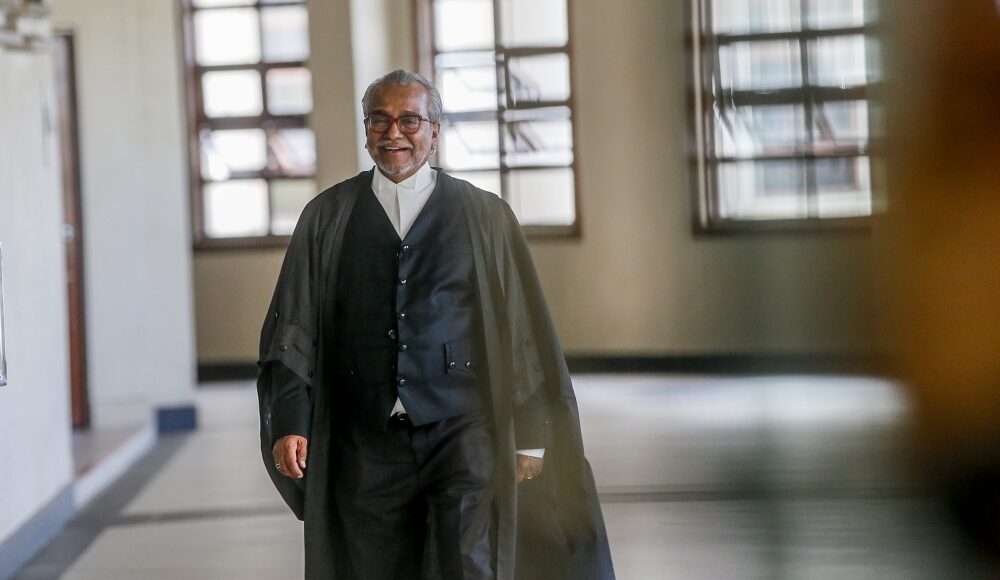JUNE 1 — The Attorney-General’s Chambers (AGC) announced on Friday (May 30) that it would pursue contempt of court proceedings against senior lawyer Shafee Abdullah, over his “Nazi Germany” reference regarding ex-prime minister Najib Abdul Razak’s royal addendum case.
In its statement, the AGC said Shafee’s remark was made in the context of an ongoing case, and “constitutes a serious and unwarranted attack” on the dignity, authority and independence of the Judiciary.
Is there a legal basis for contempt of court proceedings against Shafee?
Let’s recall the case of Peguam Negara Malaysia v Mkini Dotcom Sdn Bhd [2021]. The facts in that case are straightforward.
Malaysiakini published an article on June 9, 2020 about the acquittal of former Sabah Chief Minister Musa Aman of 46 charges of corruption and money laundering.
Coincidentally on the same day, the Office of the Chief Registrar issued a press release by the Chief Justice for all courts to be fully operational from July 1, 2020, in line with the announcement that the country was moving into the recovery phase of the Movement Control Order (MCO). Malaysiakini republished from Bernama that press release as an article.
Following that press release, a number of comments (impugned comments) by third party online subscribers appeared on Malaysiakini’s website on the same day.
A week after, the Attorney General by way of an ex parte notice of motion applied for leave to commence committal proceedings against the publisher of Malaysiakini as the first respondent and its editor in chief as the second respondent for publishing the impugned comments.
The rest, as they say it, is history. By a majority (2:1), the Federal Court found the first respondent, but not the second respondent, guilty of contempt of court.
Lawyer Tan Sri Muhammad Shafee Abdullah has made a “Nazi Germany” remark against the government. — Picture by Hari Anggara.
Contempt of court is a generic term descriptive of conduct which tends to undermine proceedings in a court of law and can take many forms.
The law on contempt is not to protect the dignity of individual judges but to protect the administration of justice. The courts cannot permit any interference with the due administration of justice. Its purpose is to maintain public confidence in the administration of justice.
Accordingly, criticisms of judges as individuals, rather than as judges, are not the subject of contempt.
In Malaysiakini’s case the impugned comments, which need not be repeated here, were beyond doubt contemptuous in nature.
The respondents themselves admitted that the comments were indeed offensive, inappropriate, disrespectful and contemptuous. Both duly regretted their publication and put it on record that they did not condone them.
When comments are vulgar, humiliating and offensive, they go beyond justified criticisms and amount to simple insults.
No one in the right frame of mind can say that such comments are done in exercise of freedom of expression and therefore protected.
A day after his Nazi Germany reference, Shafee, through his legal firm, clarified the remarks.
If the AGC indeed pursues proceedings against him, the senior lawyer will have his day in court.
* This is the personal opinion of the writer or publication and does not necessarily represent the views of Malay Mail.





